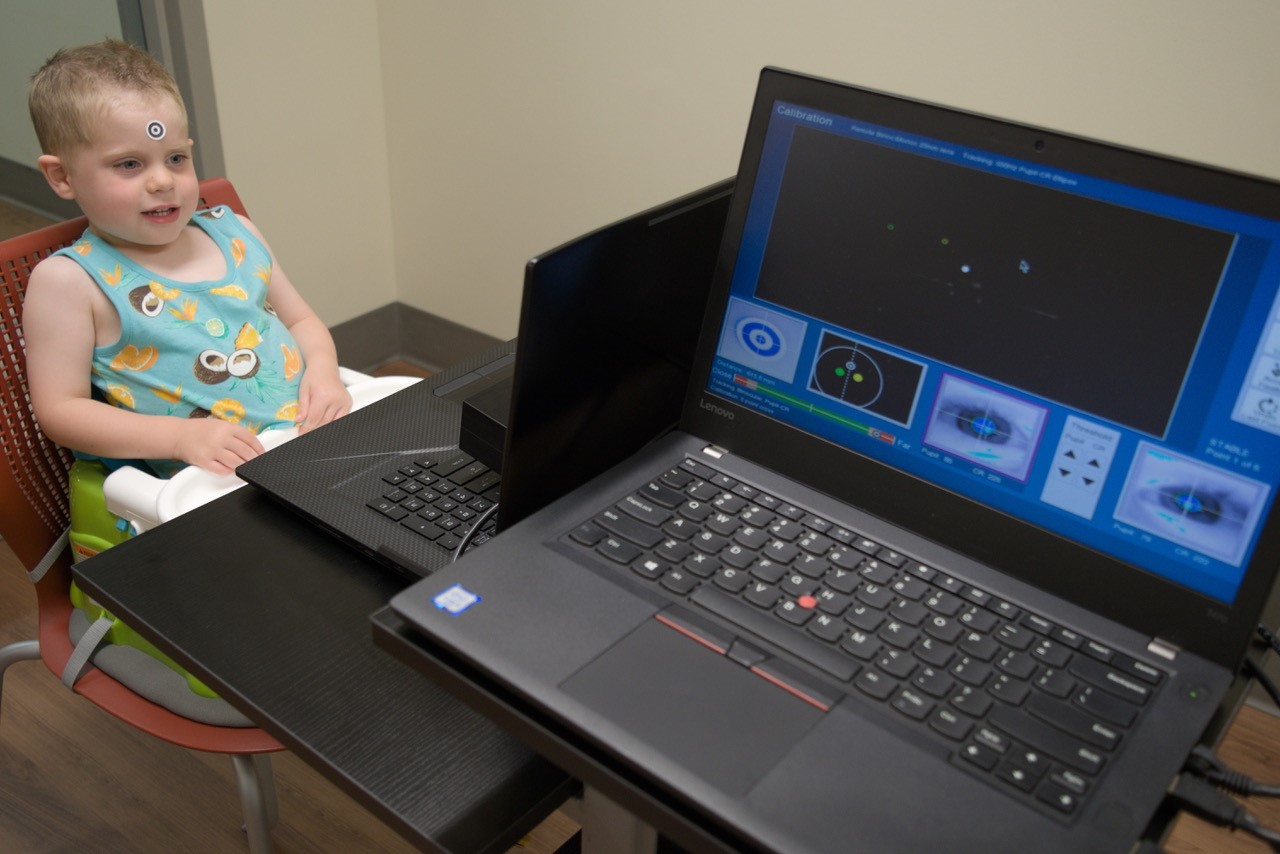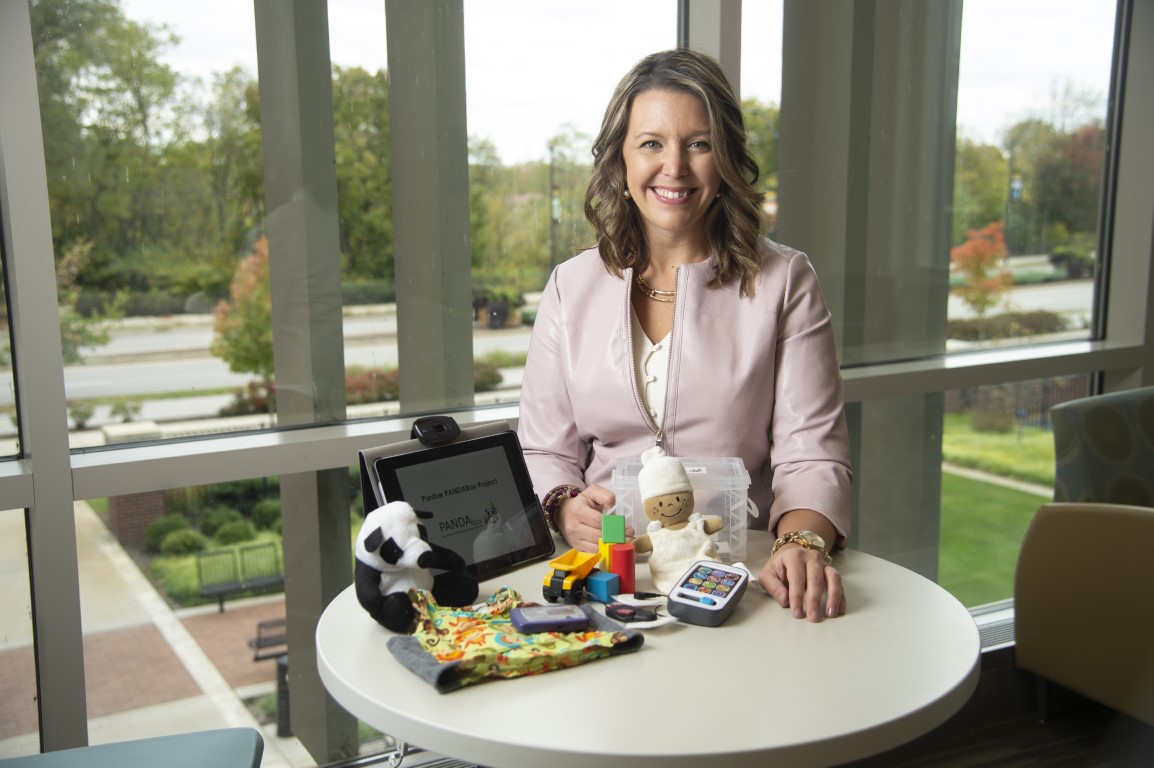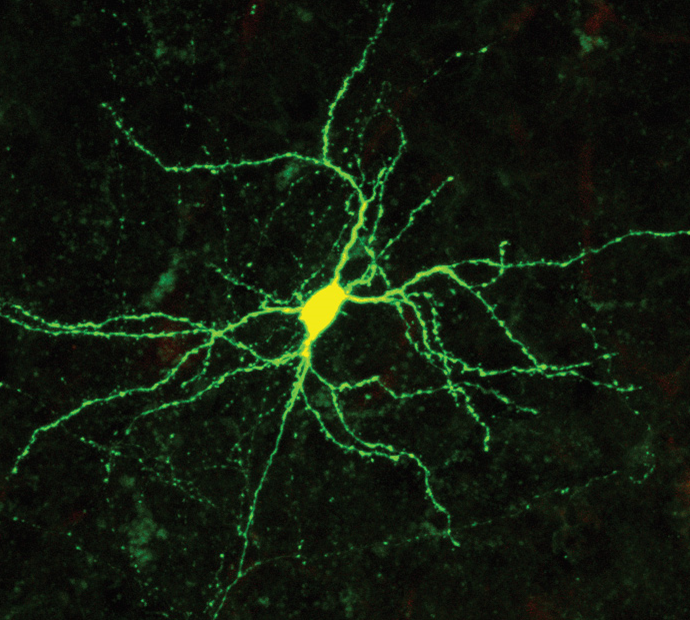Our Research
Taking Great Leaps
Purdue Autism Research Center affiliates conduct groundbreaking research that ranges “from cell cultures to community cultures.” Our science is funded by a variety of federal agencies, including the National Institutes of Health and National Science Foundation, as well as private foundations and gifts.
Read more about our faculty and students’ recently funded projects below!

An innovative model of early ASD diagnosis in the primary care setting: Integrating clinical evaluation and biomarkers to improve diagnostic accuracy
PARC affiliates Dr. Brandon Keehn (PARC Associate Director, Purdue University) and Dr. Becca McNally (Indiana University School of Medicine) received a two-year research grant from the National Institutes of Health to investigate an innovative model of early autism spectrum disorder (ASD) diagnosis that links community-based clinical evaluation with the assessment of biobehavioral markers in the primary care setting. Their results will be used to inform the further development and dissemination of integrative ASD diagnostic models that facilitate earlier and more accurate diagnosis, reduce sociocultural and geographic barriers to care, and accelerate entry into early intervention. Their long-term goal from this project is to transform individual patient care and shape how front-line clinicians provide early ASD diagnostic services, ultimately resulting in improved outcomes and lower lifetime costs for individuals with ASD and their families.
Dr. Keehn’s favorite part of this project so far has been taking his research out of the lab and into the community. According to Dr. Keehn, “One of our goals is always to translate what we do in the lab to the real world to improve the lives of children and families. This project is really our first step in doing just that, so it is very exciting.”
This project involves many graduate and undergraduate students, including former Speech, Language, and Hearing Sciences PhD student Dr. Girija Kadlaskar. According to Dr. Kadlaskar, “being a part of this work, I learned valuable clinical skills such as administering gold-standard assessments and providing feedback to families, which prepared me for my current role as a postdoctoral researcher at the MIND Institute.”
A larger goal of this project is to reduce the disparities that exist in autism diagnosis. This is a particular focus for postdoctoral fellow Dr. Ann Marie Martin working with Dr. McNally on this project. According to Dr. Martin, “As a member of this project, I gain additional training in health equity and translational research, which has shaped my career path to focus on reducing health disparities experienced by minoritized communities through a cross institutional collaborative approach.”
You can learn more about Dr. Keehn’s and McNally’s projects by visiting here or here
Read more about the team’s recent project here: https://doi.org/10.1542/peds.2019-3876

Validating a Scalable, Open Science Framework for Collecting Laboratory-Grade Data Remotely in Specialized Populations
Telehealth-based data collection procedures may improve the representativeness and scope of research on individuals with intellectual and developmental disabilities. However, no standardized protocols exist to facilitate standardized, collaborative, telehealth-based research. To meet this need, PARC Director Dr. Bridgette Kelleher received a two-year award from the National Institutes of Health to develop and validate a comprehensive web-based training platform to support researchers to collect and process high-quality, laboratory-grade assessment data remotely. This platform, which is tuned toward the needs of rare disorder communities, aims to facilitate larger-scale, synchronized, and collaborative science.
“Open science is important to the future of our field, however we often lack the infrastructure necessary to make it happen” says Kelleher. “This project aims to provide free, collaborative tools to co-create the future of remote assessment, particularly for rare disorder communities.”
Learn more about Dr. Kelleher’s research by visiting the Kelleher Lab web site.
Read more about this project on the NIH web site, or by accessing the Kelleher lab’s recent publication on the topic.
Image: Dr. Kelleher’s team ships remote assessment activities to families affected by rare disorders such as Angelman and fragile X syndromes.

Neural Mechanisms of Predictive Impairments in Autism
Dr. Alex Chubykin received a five-year research grant from the National Institutes of Health to understand, at the circuit and systems level, how impairments of circuit connectivity may lead to changes in perception and learning in autism. His team is mapping the functional circuit connectivity in Fmr1 KO mice, a mouse model of Fragile X Syndrome, the most common inherited form of autism. They are also testing the hypothesis that autism is a disorder of prediction using in vitro circuit mapping, in vivo electrophysiology, and optogenetics in Fmr1 KO mice
Dr. Chubykin’s favorite part of this project so far has been the unique ability to combine in vivo and vivo electrophysiology to dissect the pathophysiology of autism. According to Dr. Chubykin, “One of the recent hypotheses is that autism is a disorder of prediction. The brain constantly makes predictions about future events based on previous history. In patients with autism, this function may be impaired.”
This project involves many graduate and undergraduate students across campus. Student Xi Cheng is a 5th year student. Her role on the project is to map the predictive coding circuitry in the primary visual cortex. Michael Zimmerman is a 4th year graduate student, and he is studying predictive impairments in Fmr1 KO mice in vivo.
You can learn more about Dr. Chubykin’s projects by visiting the Chubykin Lab Web Site.
Learn more about Dr. Chubykin’s R01 project on the NIH web site.
Image: Close-up photo of a neuron in the primary visual cortex.